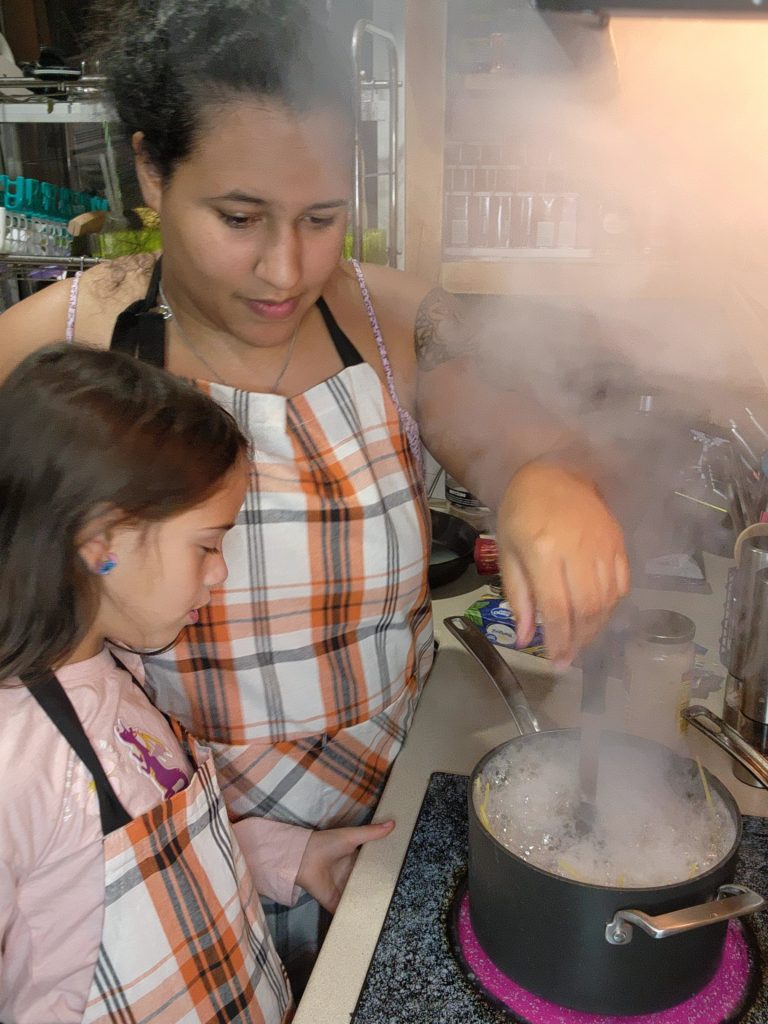Did you know that January 7th is National I am a Mentor Day? Have you ever heard of this holiday before?
Yeah me neither.
Well this is what I found out. National I am a Mentor Day is actually part of National Mentoring Month which is celebrated in January. The day is to celebrate and honor mentors and the roles they play in their communities. Mentors guide and inspire other people. Usually people who are younger than them or are at an earlier stage in life than them. This holiday was introduced in 2002 by the organization MENTOR in order to encourage individuals to share their wisdom and support the younger generation.
The Stats
If you have ever been mentored or mentored others before, then you know the huge impact it can have. 74% of adults who were intentionally mentored in their youth say that their mentor contributed SIGNIFICANTLY to their success later on in life. 69% of them say that having a mentor has helped them with issues with their education. 58% say that their mentor helped them with their mental health.
When mentoring children, you are helping future world changers! Kids who meet with a mentor regularly are 46% less likely to start using illegal drugs and 27% less likely to start drinking. (Public/Private Ventures study of Big Brothers Big Sisters). Research has also shown that the strongest benefit from mentorship is the reduction of depressive symptoms (The Role of Risk, 2013). This is huge! The youth of this generation are having a big mental health crisis in the world right now.
So basically, mentors are a big deal. That is why I made this article and why I am encouraging YOU to become a mentor. Now, before you go down the rabbit hole and worry about how little time you have available and how in the world you could possibly befriend a teenager of this generation, consider this.
As a parent, you are already a mentor…..Mind Blown. I know.
Parents Are Mentors Too
As a parent and a mentor, you guide your children not just in practical life skills, but also in spiritual growth and moral values. You model the behaviors and attitudes that align with your faith and values. This can be things like kindness, compassion, integrity, and forgiveness. You mentor your children so that they are able to learn how to navigate life with wisdom and confidence.
As your child gets older and brings more friends around, then you will also have an impact in their lives as well. You can be a mentor to them too! As a teen, there were couple adults in my life that I can say mentored me and had an impact in my life. One of these people was a single woman who helped me when I was having a lot of mental health issues. She offered a bright light of friendship when I felt the most alone. Another mentor I had was a mother of teens who was the mom of my brothers friends. Yeah, you wouldn't think your range of mentorship could go that far? All the way to your kid's, friend's sibling! Well it can!
You can have a significant impact in your child's life and in their entire friend circle by taking on the role of mentor!

Biblical Mentorship
When it comes to Christian parenting, you aren't inexperienced in mentorship. Mentorship is often read as Discipleship. You are not just guiding your children, but teaching them values, behaviors, attitudes, and skills that are rooted in the Bible.
If you struggle with how to nurture a TRUE faith in your child, read my article Faith of Their Own: Raising Kids with a Deep, Personal Faith
Mentorship as a Christian parent looks like this:
- Biblical Instruction: Sharing and discussing stories and lessons from the Bible that offer moral and character development.
- Prayer: Teaching the importance of prayer as a way to seek guidance, give thanks, and intercede for others, leading to a sense of reliance on and relationship with God.
- Service: Encouraging and participating in acts of service and charity as a family, which reflects the Christian call to love and serve others before themselves.
- Worship: Involving children in church activities and worship services to help them understand the importance of community and collective faith practices.
- Discipleship: This involves more than just teaching about the Bible and Christian living; it’s about living it out with them, showing them how faith applies to every aspect of life.
Christian mentorship also extends through the church just like it does with your kid's friends. In a church community, you are discipling and committed to ALL the children in the church. Just one of the things I love about my church, when we celebrate new members, we made a promise to them that we will mentor them AND their children. Their children, just like our own children, are future brothers and sisters in Christ.
What the Bible Says
Proverbs 22:6 “Train a child in the way he should go, and when he is old he will not turn from it.”
Deuteronomy 6:6-7 “These commandments that I give you today are to be upon your hearts. Impress them on your children. Talk about them when you sit at home and when you walk along the road, when you lie down and when you get up.”
Ephesians 6:4 “Fathers, do not exasperate your children; instead, bring them up in the training and instruction of the Lord.”
As you can see, God has already called you to be mentors to your children. Be sure you are leading as an example in your mentorship. Don't fall into the trap of practicing the popular phrase, “Do as I say, not as I do.” This excuse for your own sins does not negate their effects on your children. If there is a sin in your life, deal with it. Pray about it. Acknowledge it. Pay attention to when you sin. Be an example of a person who is fighting your sin with the strength of God instead of accepting sin.
Practical Ways to Mentor
- Shared Activities: Engage in activities that allow for teaching and conversation. This could include community service, church-related activities, or working on a project together.
- Storytelling: Share personal experiences and stories that have a moral or lesson. This can be a gentle way to impart wisdom without seeming preachy.
- Regular Discussions: Set aside time for regular discussions on important topics. These can be informal chats where children are encouraged to share their thoughts and feelings.
- Teach By Example: Model the behavior you want to instill. Children learn a lot by observing adults, so be mindful of your actions and decisions.
- Encourage Questions: Make it known that it’s okay to ask questions about anything, whether it’s faith, life choices, or everyday challenges.
- Provide Resources: Offer books, articles, and other resources that are age-appropriate and tackle subjects of interest or concern.
- Skill Development: Teach practical skills like budgeting, time management, or cooking. These skills are valuable for personal development and can be taught in fun, interactive ways.
- Faith Discussions: If mentoring within a Christian context, include Bible study or faith-based discussions that are relevant to the children's lives and experiences.
- Positive Reinforcement: Celebrate their achievements and provide positive feedback to build their self-esteem and encourage growth.
- Be Available: Let your children and their friends know that you are available for advice or support. Being accessible is key to effective mentoring.
- Create a Safe Space: Make your home a welcoming environment where your children and their friends feel safe to express themselves and discuss their lives.
- Group Activities with Intention: Organize group activities or outings that have a built-in lesson or moral. For instance, visiting a war vet nursing home can teach compassion and respect for the military.
- Listen Actively: Sometimes, mentoring is less about giving advice and more about listening. Show that you value what they have to say.
- Set Boundaries: It's important to respect personal boundaries and the parenting styles of your children's friends' parents. Align on what is appropriate with them.
Dealing with Parental Criticism
Conclusion
You know the significant impact mentorship can have in your life, whether you had a formal mentor, or just a person in the next stage of life that gave you those extra bits of wisdom you needed. Being a mentor isn't just about sharing knowledge and skills. It is also about nurturing the souls, shaping the characters, and guiding their lives towards a life rich in faith and purpose. Through your actions, words, and modeling, you have the opportunity to lay down a path that leads your children not just towards success, but towards a stronger relationship with God and a deeper understanding of their place in this world.
If your child is a bit more strong willed than most, check out my article Nurturing Strong-Willed Children as Christian Moms
I encourage you to really consider how you can take on the role of mentoring with more intention. Could you spare some time this week to have a heart-to-heart with your child or their friend? Is there a skill or life lesson that you feel called to share? Maybe there is a community service that you could help with that engages with youth. Talk to your mom friends and ask them about their mentorship experience. Get the conversation around mentorship going and encourage each other to take on this role intentionally. Every conversation can be a seed planted.
And remember, in the nurturing of one child, you may very well be nurturing a future leader, teacher, or mentor who will continue the chain of positive influence. Let's build that future together—one child, one lesson, one act of faith at a time.
I would love to include you in my prayers as we both pray over our lives and children. Feel free to email me and let me know how your journey is going.










